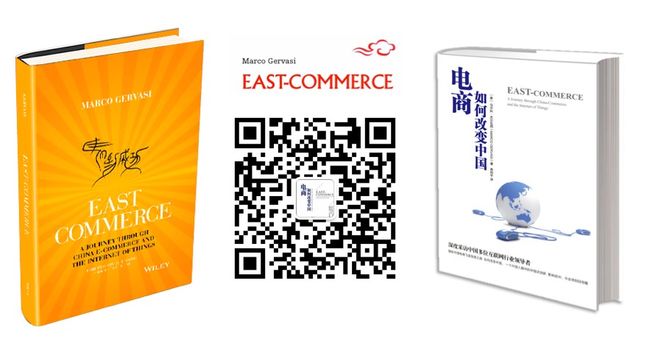Marco Gervasi原创,于2015年8月发表于TECHINASIA
Published on TECHINASIA on Aug 20, 2015
China is often painted as a graveyard for foreign Internet companies – Google pulled out, Facebook was shut out, Twitter was blocked. Recently, American Internet companies
Have found a degree of success in China…[by handing] over data and control to the Chinese government
writes Josh Horowitz in an article published in Quartz.
What the strategic partnership between Alibaba and Mei.com (Glamour Sales) clearly shows, however, is that even a foreign Internet company can really make it big in China when it has the right DNA and fits into the system – politics and data seem to have little to do with it.
Video interview (top of page): Thibault Villet, Founder & CEO, introduces Mei.com's business:
Mei.com At A Glance
With offices located in a beautiful Victorian building at the heart of the Bund, Shanghai’s old colonial concession, Mei.com is China’s first successful non-Chinese owned flash sales site. Mei.com profits by selling off-season, slow-moving products from top luxury brands such as Armani, Zegna or Michael Kors. Each flash sales event lasts roughly five days, selling a limited number of items. In 2014 the company sales exceeded USD 150 million, with over 2,400 brands sold on the platform.
Mei.com was launched in Shanghai in 2009 by Thibault Villet, a seasoned veteran of luxury brands in Asia. In 2012 Neiman Marcus Group, the well-known U.S. retailer, invested US$ 28 million, but sold its stake in 2014. At the same time, London based asset management Investec and Hong Kong jewelry powerhouse Chow Tai Fook invested US$ 65 million for an undisclosed amount. Finally, on July 8, Alibaba has announced to invest US$ 100 million in the company.
Key Success Factors
I do not believe Mei.com success is the result of a lucky strike. On the contrary, the company has implemented a winning strategy based on three pillars – finding the right niche for China, having a very deep expertise and building a strong local team – which should be considered by all Internet companies, local or foreign, seeking to be acquired by a big Chinese platform.
Chinese e-commerce sales have been growing at a rate of 70% a year since 2009. According to a study by KPMG, e-commerce transactions in China are expected to reach US$ 540 billion in 2015, or 7.5% of the country total retail spending. In order to tap into this massive opportunity and gain market share, many platforms have become gigantic bazaars selling products ranging from food, to electronics to apparel.
1. A Clear Niche
Rather than being everything to everyone, Mei.com decided to focus on a specific niche instead – the luxury experience. At the beginning the move seemed a big bet – luxury is often purchased at physical stores and in the West the luxury audience is less inclined to shop online.
But in China things work differently. The affluent Chinese with the financial means to buy luxury products are the same people who are using the Internet. From sport cars to holidays, almost anything can be sold online in China, because of its convenience.
The bet paid off and together with apparel, since last year Mei.com started running flash sales of limited edition cars such as Maserati, and luxurious holidays on 5 star yachts. Mei.com has created a unique offer picking the right niche for China.
2. Years Of Industry Experience & A Strong Culture
Its strong luxury DNA has also played an important role in establishing itself as one of the market leaders. While doing research for my book, I visited the company and talked to Mr Villet quite a few times. He has a deep understanding of the luxury world and a strong relationship with international brands. Prior to launching Mei.com, he held senior positions at both L’Oréal and Coach. His experience and relationships took a long time to develop and are a true intangible value that Chinese consumers seem to appreciate more and more.
While Internet businesses are often pictured as run by dress down teams, Mei.com is managed with a different attitude. Everyone is carefully dressed, and seems coming out of the covers of the latest fashion magazines. Some of the staff plans its office wardrobe up to one week in advance, down to details such as the watch color, accessories and wearables. This devotion to details eventually passes down to customers and to their perception of the company.
This strong culture has allowed the company to retain its consumer base and prevent clones and local players to take away market share.
3. The Local Touch
Finally, Mei.com is managed like a local company. Often global companies tend to push one-size fits all solutions while entering China. Decisions are taken by headquarters sitting on the other side of the world. It is common for local managers to see opportunities but to be unable to pursue them because of the way the headquarters runs the business. As an entrepreneur who ‘lives and breathes China,’ Mr Villet has made swift and flexible decisions.
As things were happening, he reacted just as a local entrepreneur would do. He localized his decisions building the company from the inside-out and not imposing a strategy and taste from overseas.
He has also surrounded himself with young and enthusiast fashionistas who eat and breathe fashion. Some of them might not have the sophistication of their foreign colleagues working in Paris or New York yet, but they have deep understanding of what Chinese consumers want.
They are just about perfect for the market they are in because they fit right into it. As their taste grows, their customers will grow with them.
Capturing Alibaba’s Attention
Alibaba has proven to be seriously interested in the growing market of flash sales. This is why it placed its bet on Mei.com. Its reputation among brands and customers will benefit Alibaba’s TMall growing image, as it is seriously committed to eliminate fakes from its platform and provide a true shopping experience. This partnership gives Alibaba the credibility it is looking for its more sophisticated customers.
I believe this strategic partnership teaches a lesson to many foreign Internet businesses who are trying to break into the Chinese market. Politics might certainly play its role in being successful in China, yet having a sound and successful business model is the first pre-requisite and should not be underestimated. It the end, business is business.


